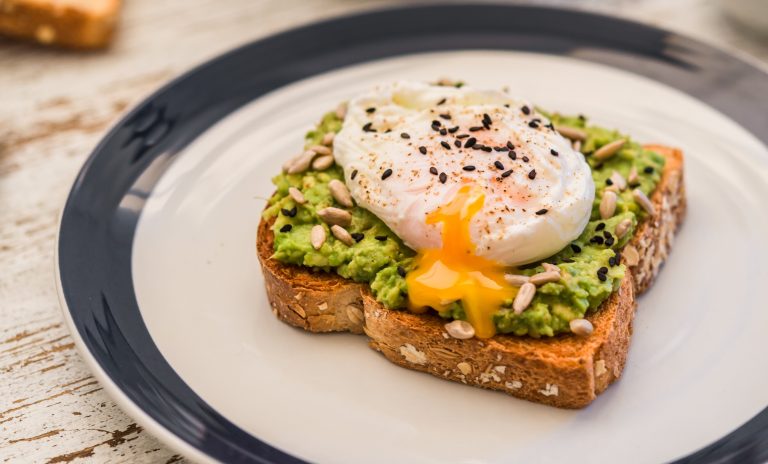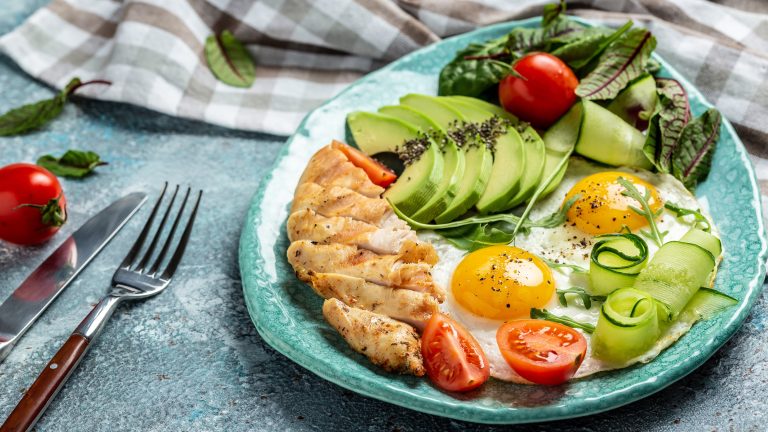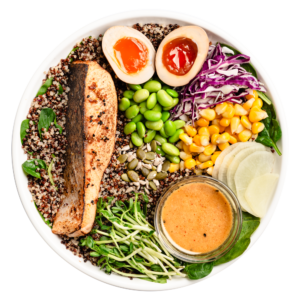The Central American avocado tree originated in southern Mexico and Columbia around 7000 years ago. In the past decade, avocados have enjoyed a surge in popularity and have become synonymous with leading a healthy lifestyle. The Hass avocado is the most popular variant and is known for its dark-green, nubby skin. This nutritious green fruit has found itself on top of toast, inside a burger, and served alongside nachos as guacamole dip.
General Benefits of Eating Avocados

The taste of avocado is very unique. There is no overwhelming taste and some people have described it as a muted buttery or nutty taste. The most noticeable thing about the avocado is its texture, as it is dense and creamy.
1. A great source of potassium
According to the US Department of Agriculture, a 100-gram serving of avocado contains 485 mg of potassium, which is more than a banana. This mineral helps regulate nerve function and move nutrients into cells while taking away waste. It also works to combat high blood pressure because the potassium allows more sodium to leave the body.
2. Lowers cholesterol
Avocados contain monounsaturated fats which work to lower LDL cholesterol. Consuming too many foods that contain LDL cholesterol leads to fat hardening along the edges of your arteries and narrowing them. This reduces blood flow through the arteries, which leads to further health risks such as cardiovascular disease. On the other hand, avocados have good fats, which do not raise the LDL cholesterol levels and instead replace them. Furthermore, they do not have cholesterol at all.
3. High in fiber
According to the USDA, avocados have nearly 7 grams of fiber per 100 grams. Food that is high in fiber may reduce the risk of heart disease, obesity and type 2 diabetes. This makes the avocado an excellent choice for people watching their weight because it helps us feel full after eating.
4. Rich in minerals and vitamins
Avocados are a source of vitamins C, E, K and B6, as well as riboflavin, niacin, folate, pantothenic acid and magnesium. To go deeper into some of these vitamins and minerals, Vitamin K helps support bone health by increasing calcium absorption and reducing the urinary excretion of calcium. Folate may also reduce the risk of developing colon, stomach, pancreatic, and cervical cancers.
How to pick perfect avocados
Avocados are a very unpredictable fruit. If you leave it out during the day, it may become over-ripe by the time you want to eat it for dinner. Here are some tips on how to pick (and store) avocados:
- You can check to see if the fruit is ripe by giving it a quick squeeze, but you shouldn’t press in on the sides. The skin should be tender but not too soft.
- Flick the stem. If it comes off easily and you can see green underneath, the avocado is ripe. If it does not come off easily or you see brown underneath the avocado is either not ripe or overripe, and therefore unusable.
- Because different varieties of avocados have different textures, you shouldn’t rely on the texture of the avocado skin to tell whether it is ripe or not.
- Avoid fruit with dark blemishes on the skin or over-soft fruit.

- You can store avocados in the refrigerator if you have brought a lot of them. This will slow the ripening process so you can enjoy them throughout the week.
- To ripen avocados at home, put them in a brown paper bag out of direct sunlight. Within three days, they should be fully ripe. A ripe avocado should not be too hard (like an unripe one) or too mushy (like one that’s too ripe).
- If you want to slow the browning once the avocado is cut, you can cover it lightly with some lemon or citrus juice.
Avocados deserve the title of “superfood”
They can be used as a substitute for different fats in your diet, such as butter, mayonnaise, peanut butter and so on. It works like magic in vegan recipes like salad, smoothies, and even brownies. They are worth the hype as a superfood and aren’t just a cultural phenomenon.




